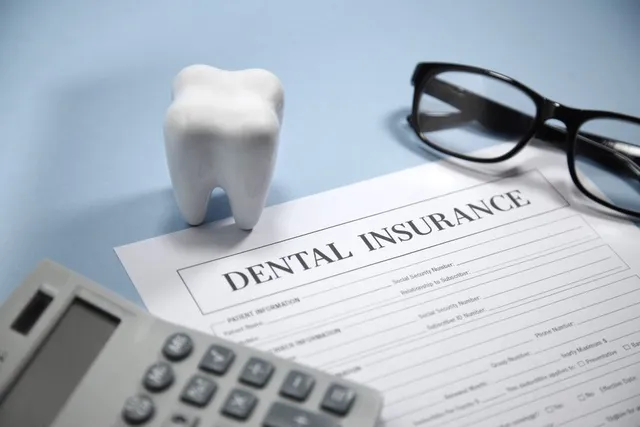Key Takeaways
- Understanding dental insurance can help maximize benefits and reduce out-of-pocket costs.
- Many myths and misconceptions surround dental insurance—knowledge is key to making informed decisions about coverage.
- This article addresses common misunderstandings and provides clarity with expert advice and data.
Table of Contents
Introduction to Dental Insurance Myths
Navigating the world of dental insurance can feel like wandering through a labyrinth of paperwork and policies that aren’t always easy to understand. Confusion often arises from prevalent myths that distort the reality of available plans and their benefits. For instance, many overlook the Delta Dental PPO plans, which offer robust options. Clarifying these myths is essential, enabling individuals to make informed decisions that can significantly impact their oral health and financial well-being.
This article dissects common misconceptions and provides accurate information to empower readers. You can better navigate your dental insurance plan with reliable knowledge, ensuring optimal health outcomes and reduced financial burden. Let’s debunk these myths and unravel the facts together.
Myth 1: All Dental Insurance Plans Are the Same
A common assumption is that all dental insurance plans operate similarly and deliver identical coverage and limit options. However, the landscape of dental insurance is more varied than many realize. Different plans cater to various needs, offering distinctions in network size, coverage limits, and cost-sharing requirements. For instance, while one plan might emphasize comprehensive preventive care, another may provide more flexibility in selecting out-of-network dentists.
Understanding these differences is crucial for choosing the right plan. By delving into the specific offerings and benefits of potential plans, such as whether they align with your dental care priorities and budget, you can make a choice that truly suits your needs.
Myth 2: Coverage Excludes Essential Procedures
Another widespread misconception is that dental insurance policies are limited in scope, often leaving out essential dental procedures. While some plans may have exclusions, a broad spectrum of necessary treatments is typically covered, especially under comprehensive plans. These include routine cleanings, check-ups, fillings, and more invasive procedures when required.
It’s essential to scrutinize the fine print of each policy to understand what is covered and what isn’t. Doing so can avert unpleasant surprises later. Furthermore, many plans are specifically designed to cover preventive measures, reinforcing the importance of proactive dental care. Being aware of what your plan includes aids in efficiently using your coverage, thereby extending its value.
Myth 3: Dental Insurance Isn’t Cost-Effective
Some individuals question the value of dental insurance, perceiving it as an unnecessary expense. However, this notion often overlooks the financial protection and benefits of coverage. The primary advantage is seen in preventive care, which addresses potential problems before they flare up into more extensive—and expensive—issues.
Numerous studies have shown that preventive care ensures continual oral health and translates into significant savings over time. Dental insurance often covers regular cleanings and check-ups, which are vital for detecting issues early and leading to less costly treatments. By understanding the financial benefits of protection, you can appreciate the cost-effectiveness of maintaining dental insurance. Consider the research on preventive oral health interventions for an in-depth exploration of cost-effective practices.
Myth 4: You Can Only See Certain Dentists
Many potential policyholders are deterred by the belief that dental insurance requires giving up their trusted dentist. While it’s true that many plans feature networks, providing the most significant benefits when using in-network providers, this does not preclude seeing out-of-network professionals. Typically, out-of-network visits might incur higher co-payments, but the insured chooses.
Insurance networks are designed to give policyholders flexibility while minimizing costs. Evaluating the list of participating dentists within any prospective plan is essential, as is ensuring that preferred providers are included or weighing the costs of choosing providers outside this list. Policyholders can maintain their preferred relationships without significant financial strain by carefully analyzing these aspects.
Myth 5: Preventive Care Isn’t Necessary
Some people erroneously believe they can forgo preventive care if they aren’t experiencing any dental issues. This myth undercuts the importance of regular visits to the dentist, which play a crucial role in maintaining long-term oral health. Such care includes screenings and professional cleanings, which have been proven to mitigate the risk of developing more severe issues.
Investing in preventive care leads to astonishing returns in oral health and finances. Catching issues early can prevent more intensive procedures and associated costs, promoting more affordable, minimally invasive care in the long run. The importance of incorporating preventive care into one’s routine cannot be overstressed for maintaining both oral health and economic efficiency.
Common Questions About Dental Insurance
Let’s tackle some common questions that often arise when discussing dental insurance. How do you file a claim successfully? Generally, after receiving services, your dentist will submit a detailed invoice to your insurance provider, who then processes it for reimbursement. It’s a straightforward process but requires attention to the documentation provided by your dental office.
How can one ensure they’re selecting the right plan? Begin by assessing your dental health needs, comparing different plans’ costs and benefits, and reading reviews to determine which plan offers the best coverage at an affordable rate. Being informed about these options leads to a more satisfactory choice, ensuring coverage adequacy and cost-effectiveness.
Conclusion: Making Informed Decisions About Dental Coverage
Ultimately, understanding dental insurance beyond myths allows you to choose the plan that best suits your lifestyle and needs. Scrutinize each option, debunking myths and relying on factual information to guide your selection. Exploring various plans and asking the right questions can help you secure the most valuable dental insurance that offers peace of mind and a healthier smile.

